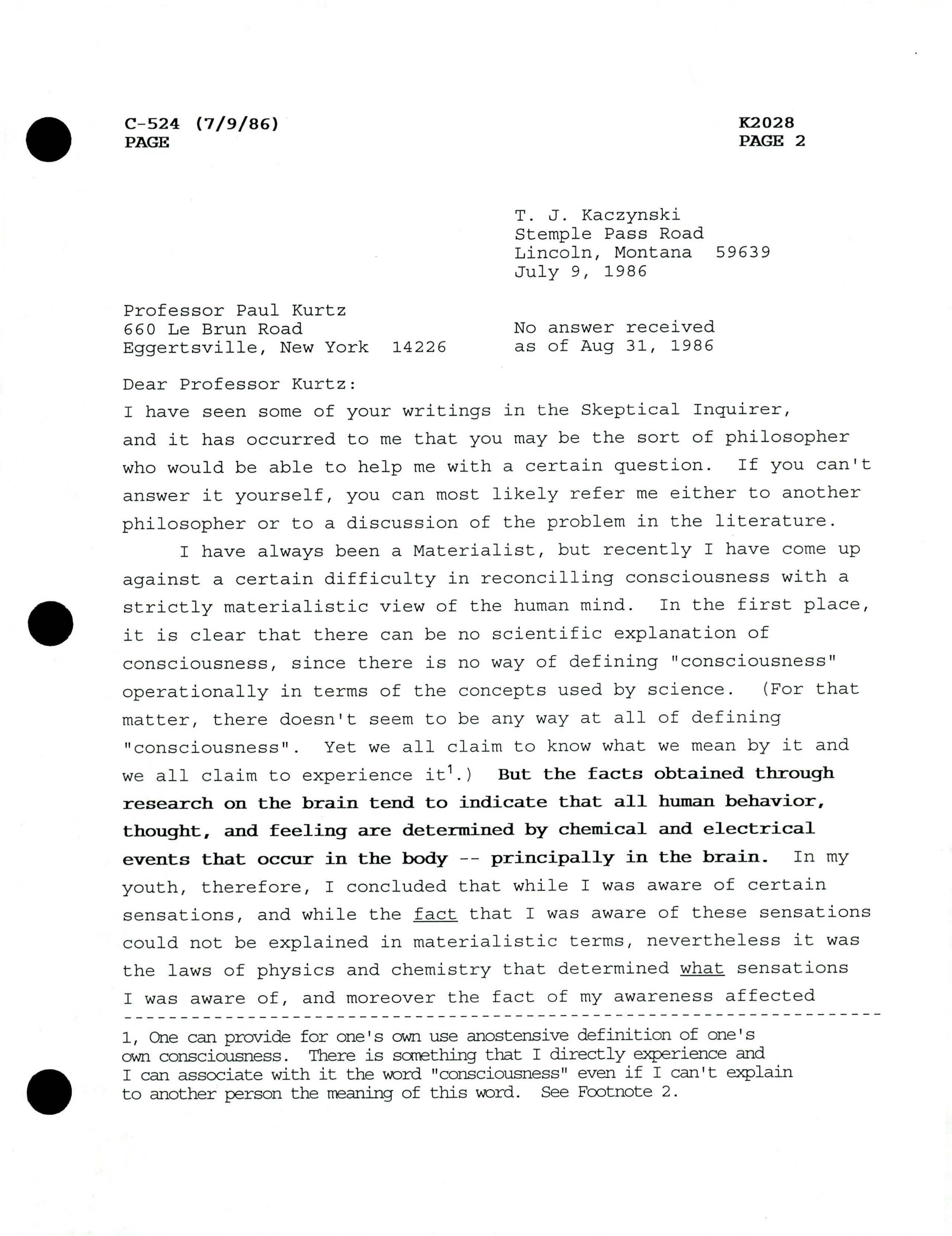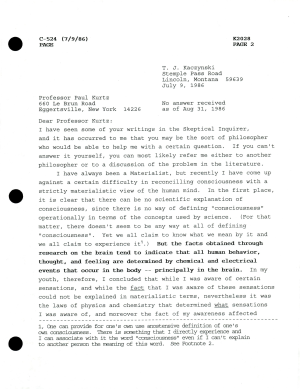Ted Kaczynski's Letter to Paul Kurtz on Determinism (Preview)
T. J. Kaczynski
Stemple Pass Road
Lincoln, Montana 59639
July 9, 1986
Professor Paul Kurtz
660 Le Brun Road
Eggertsville, New York 14226
No answer received
as of Aug 31, 1986
Dear Professor Kurtz:
I have seen some of your writings in the Skeptical Inquirer, and it has occurred to me that you may be the sort of philosopher who would be able to help me with a certain question. If you can't answer it yourself, you can most likely refer me either to another philosopher or to a discussion of the problem in the literature.
I have always been a Materialist, but recently I have come up against a certain difficulty in reconcilling consciousness with a strictly materialistic view of the human mind. In the first place, it is clear that there can be no scientific explanation of consciousness, since there is no way of defining "consciousness" operationally in terms of the concepts used by science. (For that matter, there doesn't seem to be any way at all of defining "consciousness". Yet we all claim to know what we mean by it and we all claim to experience it[1].) But the facts obtained through research on the brain tend to indicate that all human behavior, thought, and feeling are determined by chemical and electrical events that occur in the body -- principally in the brain. In my youth, therefore, I concluded that while I was aware of certain sensations, and while the fact that I was aware of these sensations could not be explained in materialistic terms, nevertheless it was the laws of physics and chemistry that determined what sensations I was aware of, and moreover the fact of my awareness affected ...
[missing page/s]

[1] One can provide for one's own use anostensive definition of one's own consciousness. There is something that I directly experience and I can associate with it the word "consciousness" even if I can't explain to another person the meaning of this word. See Footnote 2.


